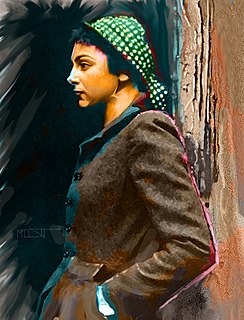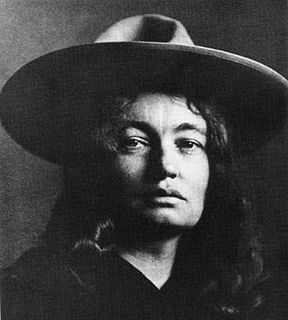A Quote by Anne Tyler
It's true that it's a solitary occupation, but you would be surprised at how much companionship a group of imaginary characters can offer once you get to know them.
Related Quotes
For any artistic person who creates imaginary people, the art is like inhabiting the life and mind of a seven-year-old child with imaginary friends and imaginary events and imaginary grace and imaginary tragedy. Within that alternate universe, the characters do have quite a bit of free will. I know it's happening in my mind and my mind alone, but they seem to have their own ability to shape their destinies. So I'm not shooting for anything. If the characters are vulnerable it's simply because they're very human.
The man who fears to be alone will never be anything but lonely, no matter how much he may surround himself with people. But the man who learns, in solitude and recollection, to be at peace with his own loneliness, and to prefer its reality to the illusion of merely natural companionship, comes to know the invisible companionship of God. Such a one is alone with God in all places, and he alone truly enjoys the companionship of other men, because he loves them in God in Whom their presence is not tiresome, and because of Whom his own love for them can never know satiety.
The culture in which you parent, mentor, or educate boys exhorts them to be individualistic and group-oriented at once, but does not give them a tribal structure in which to accomplish both in balance. It used to be that the tribe formed a boy's character while the peer group existed primarily to test and befriend that character. Nowadays, boys' characters are often formed in the peer group. Mentors and intimate role models rarely exist to show the growing boy in any long-term and consistent way how both to serve a group and flourish as an independent self.
The people who live the life of their dreams know that it's not about how much money they have, but how much passion, willingness and dedication they have to make their dreams come true. And on top of that they know that no one defines what's true for them except them. And on top of that they know that Plan B is not an option, because it's a distraction from Plan A. And on top of that they just don't give up because that is who the hell they are!
I started to make a joke that I had an imaginary friend underneath the let-out couch named Binky. I would never talk to him; I would only use him as entertainment for other people. I knew they thought that children had imaginary friends, so I was like, "I don't really believe in imaginary friends, but I want to feel like I do." I used to make a joke, "My imaginary friend Binky says this," because I knew it would get a laugh out of them.
When you stop expecting people to be perfect, you can like them for who they are. And when you stop expecting material possessions to complete you, you'd be surprised at how much pleasure you get in material possessions. And when you stop expecting God to end all your troubles, you'd be surprised how much you like spending time with God.






































